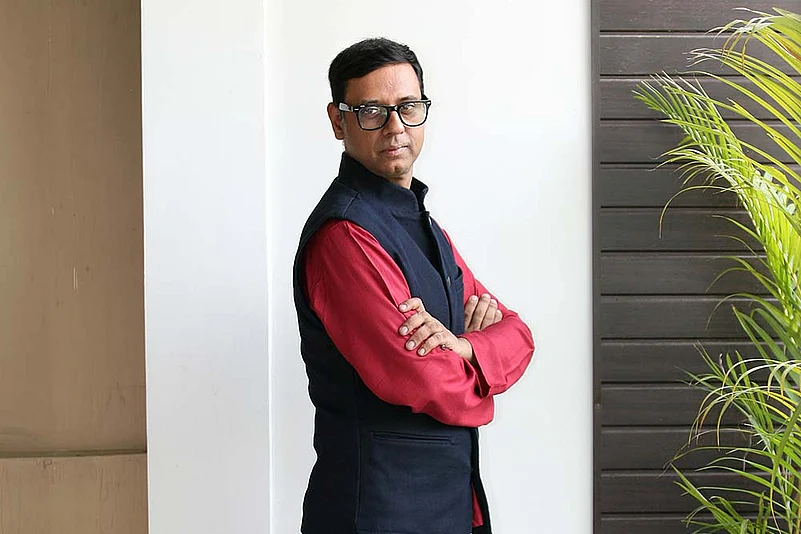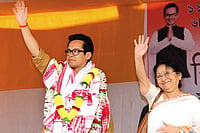Most of us may have overlooked the fact that these Assam elections were the first one in 30 years when insurgency was not an issue. That naturally meant alleged illegal migration from Bangladesh returned centrestage with a throwback to the 1980s and the alliance of BJP, AGP and BPF fit in perfectly with the tone and tenor of the campaign. Statistically, Assamese have cast their vote in the past largely on these two issues; other things hardly mattered. Assam has one of the country’s worst health indicators. Flood woes are an annual phenomenon causing huge losses to life and property. It has created an unending cycle of debt and misery though, curiously enough, that has never been a factor in voting. Identity continues to be the main current but its complexities never seem to come in the way of alliances. Sarbananda Sonowal’s first speech after taking over was about sealing the Indo-Bangladesh border in the next two years. The border happens to be partly riverine and he obviously cannot raise a fence on the water. Besides, there are 68 smuggling points through which cattle from India is carted across in the tens of thousands to become ‘animals of unknown origin’ in Bangladesh, an important source of the country’s economy. Therefore, while the BJP can boast of having won an election without mentioning the ‘cow’, it is the illegal cattle trade that fuels a mafia active along the border that Sonowal may want to hold by the horns.
The winning formation in Assam can be seen as a neatly stitched social alliance but it’s also a fascinating mix of personalities: Sarbananda Sonowal, former AASU leader and then AGP MLA who challenged the discriminatory IMDT Act; Himanta Biswa Sarma, who tried a bit of student politics, was charged with murder, had a long innings with the Congress and is now a BJP strategist; Prafulla Kumar Mahanta, AASU leader and two-time chief minister alleged to have masterminded the ‘secret killings’ in the state; and Hagrama Mohilary, who led one of the most violent militias in the region, blowing up passenger trains and carrying out massacres.
It is interesting to note that the ULFA was for the first time not able to influence the election, partly because the group is split and is no longer a force to reckon with. The pro-talk faction had announced they would stay away from the elections (one hopes that was the case). With guns out of circulation, the election mood was upbeat and candidates fought it out without fear of assault or even those routine ransom threats.
On April 1, 2014, Narendra Modi claimed at a rally in Dhemaji that there was a conspiracy to eliminate the endangered one-horned rhinoceros (the symbol of Assam) to create space for settling illegal migrants from Bangladesh—painting the BJP’s chief vote-catching issue in extra bold colours. In the same speech, he added, “Those who are conspiring to finish off the rhino, they should listen carefully. After May 16, they will be taken to task one by one (chun chun ke hisab liya jayega).” Since his threat two years ago, more than 50 rhinos have been poached. For the record, Kaziranga alone has lost eight rhinos to poachers in the first four months of this year.
My last interaction with perfume merchant and AIUDF founder Badruddin Ajmal was when we both were caught in a terrible storm on an embankment along the Brahmaputra and our vehicles were stuck in the slush. There was a boat wreck; I was covering the incident. Everyone had left after the last body was accounted for and our crew still hanging in there to go live on television from ground zero. That is when Ajmal arrived, evidently to earn some brownie points. When the cloud burst, he and his security convoy tried to escape to safer ground. Hoping they would know the way back, we followed and that is how we ended up in the slush.
We took shelter in a farmer’s hut. For the next couple of hours, huddled in one room with a large family, I noticed Ajmal read the scriptures on his iPad. The family managed to arrange some puffed rice and eggs. All along, Ajmal seemed hardly perturbed—this while I was worried about how to take our vehicle out of the paddy that we may have destroyed by our misadventures. By midnight the rains subsided, and we were negotiating with a tractor to pull the vehicles out. Suddenly we discovered that Ajmal and his men had exited the scene without so much as a by your leave.
This election offered an echo of that night—Ajmal and his AIUDF had claimed they would be kingmakers but he exited stage left, going on to lose even his own seat!
Faraway from superhot Delhi, it felt like achhe din had arrived in Guwahati, with monsoon showers, papercut lotus blooming, and streets full of cows as the Brahmaputra flowed without much fuss.
Award-winning journalist and author Kishalay Bhattacharjee is director, Reachout Foundation, and editor, ourstories.org.in
E-mail your diarist: kishalayb [AT] gmail [DOT] com






















